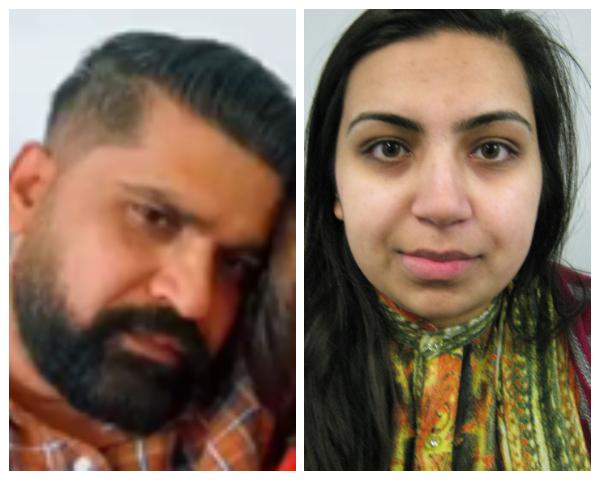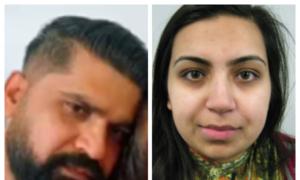The father and stepmother of the 10-year-old Sara Sharif have been sentenced to life imprisonment for years of horrific torture and “despicable” abuse culminating in her murder.
Urfan Sharif, 42, was handed a minimum term of 40 years and Beinash Batool, 30, was given 33 years. Sara’s uncle, Faisal Malik, 29, who was found guilty of causing or allowing her death, was jailed for 16 years.
Mr. Justice Cavanagh said Sara’s death “was the culmination of years of neglect, frequent assaults, and what can only be described as torture.”
The judge added that the “despicable treatment” took place in “plain sight and in front of the rest of the family.”
Addressing Sara’s father, the judge said: “You treated her in such a way because you considered it your right to impose harsh discipline on her.
Sara’s Case
Police found Sara’s body under a blanket in a bunk bed at her home in Woking on Aug. 10 last year, with dozens of injuries including extensive bruising, burns, and fractures. A post-mortem examination concluded she died of unnatural causes.The Central Criminal Court heard on Tuesday that Sara suffered 71 “fresh” injuries including 25 broken bones, iron burns on her bottom, scalding marks to her feet, and human bites.
The jury was told the 10-year-old had been hit with a cricket bat and iron bar, as well as tied up with packaging tape and her head covered with a makeshift hood.
By January 2023, Sara began wearing a hijab to conceal her bruises at school. Teachers reported injuries to social services in March, but the case was dropped within days. In April, Sara was removed from school, and the abuse intensified in the weeks leading to her death.
Within hours of her death, her family booked flights to Pakistan. Upon arriving in Islamabad, Urfan Sharif called the police, admitting he had “beaten her up too much.” Police discovered Sara’s broken and battered body in a bunk bed, accompanied by a confession note left on her pillow.
The family returned to the UK on Sept. 13, 2023, leaving other children behind in Pakistan. They were arrested upon landing at Gatwick Airport.
Libby Clark from the Crown Prosecution Service said in a statement that “the defendants’ actions after her death demonstrated a shocking disregard for her life as they attempted to flee the country to evade justice, thinking only of themselves.”
“Today’s sentences reflect the cruelty and gravity of their crimes – and while no sentence can bring Sara back, we hope this outcome is able to provide some small comfort to all those that knew and loved her,” Clark added.
Legislation
The sentencing on Tuesday comes on the same day the Children’s Wellbeing and Schools Bill is being introduced in Parliament.The bill will launch new registers to identify children who are not in school and a measure giving children a unique identifier number, akin to a national insurance number.
The government suggested this will enable councils to more easily deliver support and intervene. Local authorities will be able to require school attendance for any child if the home environment is assessed as unsuitable or unsafe.
Meanwhile, parents will no longer have an automatic right to homeschool their children, if they are subject to a child protection investigation or are under a child protection plan.
According to official figures, 111,700 children have been recorded to receive elective home education in the autumn term 2024–2025, an increase on an estimated 92,000 in the previous autumn term.







